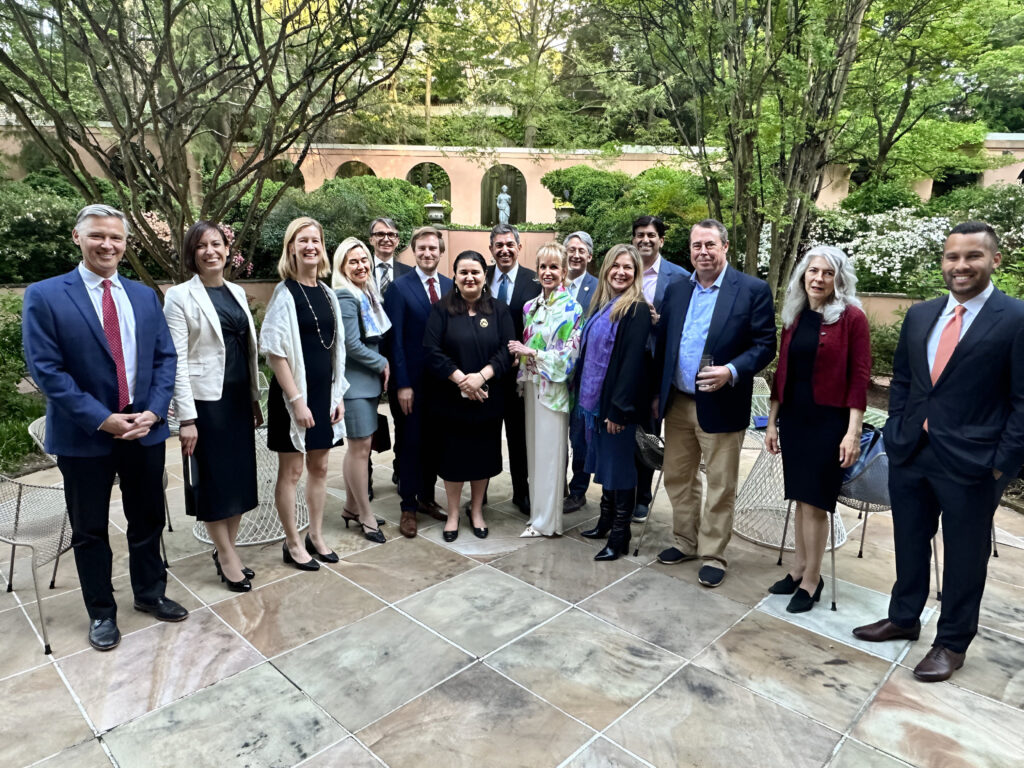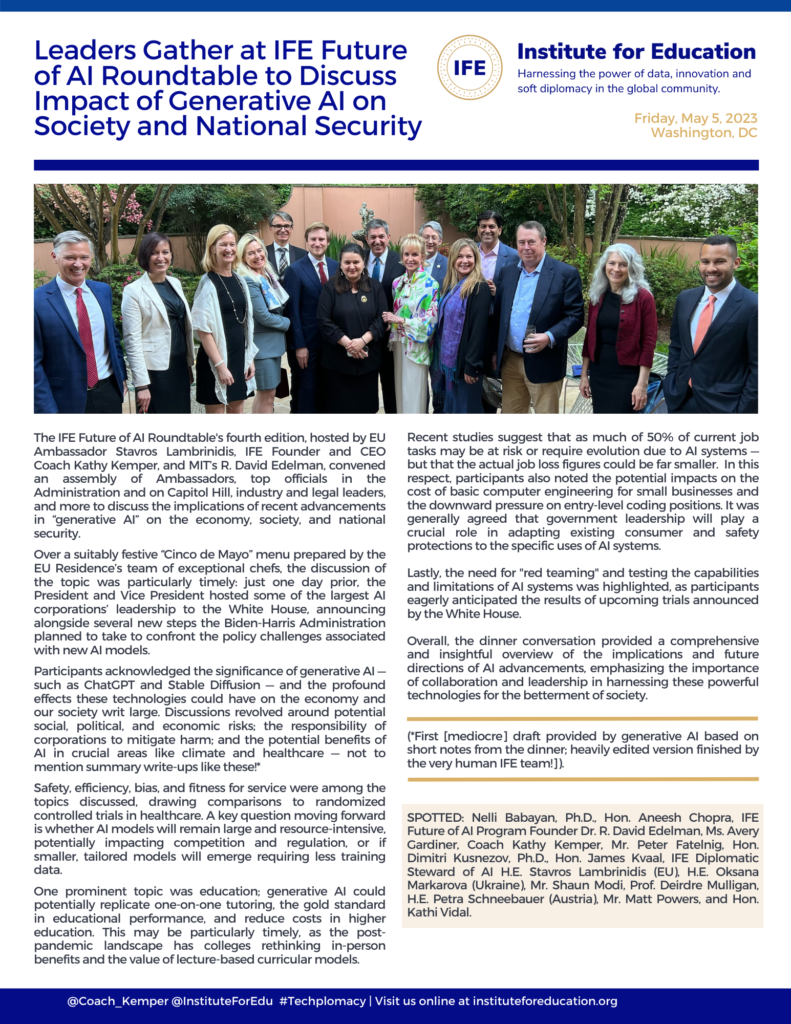
The IFE Future of AI Roundtable’s fourth edition, hosted by EU Ambassador Stavros Lambrinidis, IFE Founder and CEO Coach Kathy Kemper, and MIT’s R. David Edelman, convened an assembly of Ambassadors, top officials in the Administration and on Capitol Hill, industry and legal leaders, and more to discuss the implications of recent advancements in “generative AI” on the economy, society, and national security.
Over a suitably festive “Cinco de Mayo” menu prepared by the EU Residence’s team of exceptional chefs, the discussion of the topic was particularly timely: just one day prior, the President and Vice President hosted some of the largest AI corporations’ leadership to the White House, announcing alongside several new steps the Biden-Harris Administration planned to take to confront the policy challenges associated with new AI models.
Participants acknowledged the significance of generative AI — such as ChatGPT and Stable Diffusion — and the profound effects these technologies could have on the economy and our society writ large. Discussions revolved around potential social, political, and economic risks; the responsibility of corporations to mitigate harm; and the potential benefits of AI in crucial areas like climate and healthcare — not to mention summary write-ups like these!*
Safety, efficiency, bias, and fitness for service were among the topics discussed, drawing comparisons to randomized controlled trials in healthcare. A key question moving forward is whether AI models will remain large and resource-intensive, potentially impacting competition and regulation, or if smaller, tailored models will emerge requiring less training data.
One prominent topic was education; generative AI could potentially replicate one-on-one tutoring, the gold standard in educational performance, and reduce costs in higher education. This may be particularly timely, as the post-pandemic landscape has colleges rethinking in-person benefits and the value of lecture-based curricular models.
Recent studies suggest that as much of 50% of current job tasks may be at risk or require evolution due to AI systems — but that the actual job loss figures could be far smaller. In this respect, participants also noted the potential impacts on the cost of basic computer engineering for small businesses and the downward pressure on entry-level coding positions. It was generally agreed that government leadership will play a crucial role in adapting existing consumer and safety protections to the specific uses of AI systems.
Lastly, the need for “red teaming” and testing the capabilities and limitations of AI systems was highlighted, as participants eagerly anticipated the results of upcoming trials announced by the White House.
Overall, the dinner conversation provided a comprehensive and insightful overview of the implications and future directions of AI advancements, emphasizing the importance of collaboration and leadership in harnessing these powerful technologies for the betterment of society.
(*First [mediocre] draft provided by generative AI based on short notes from the dinner; heavily edited version finished by the very human IFE team!]).
View event photos | review roundup
